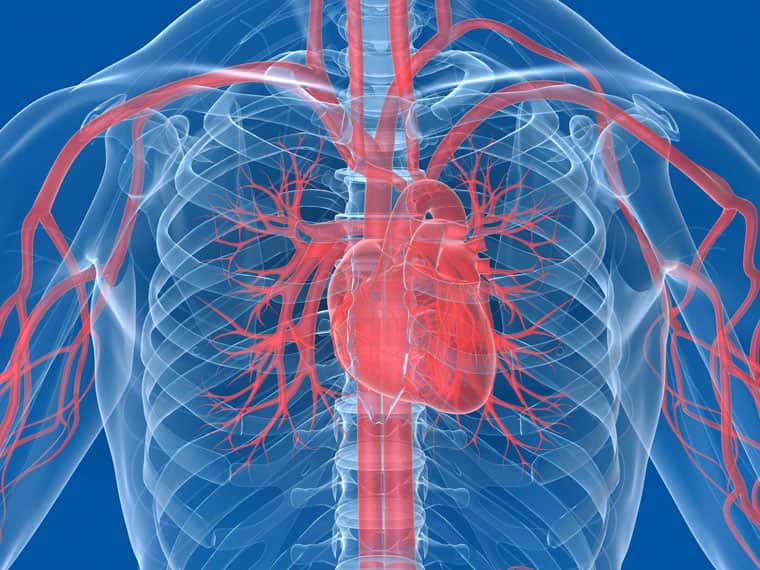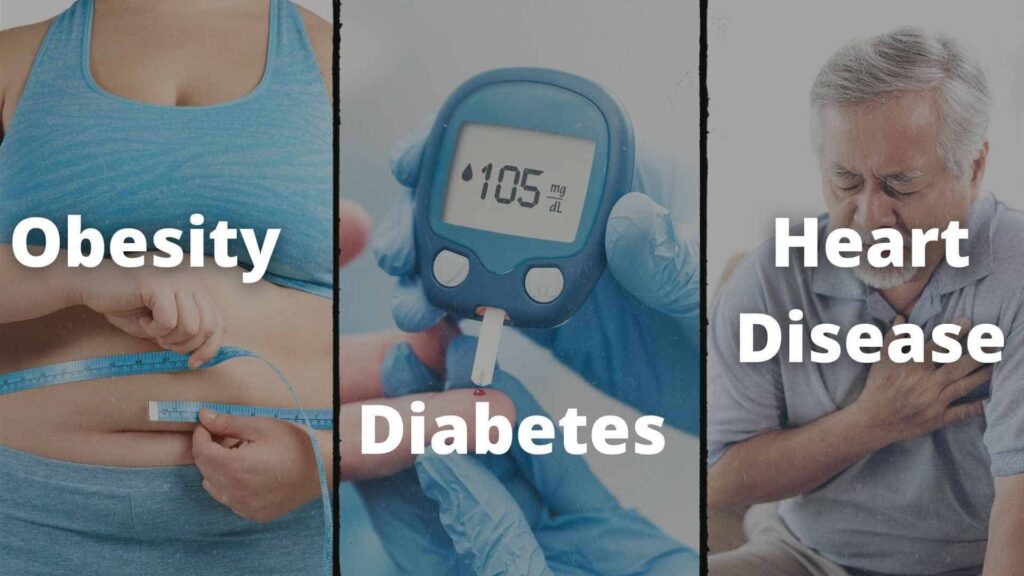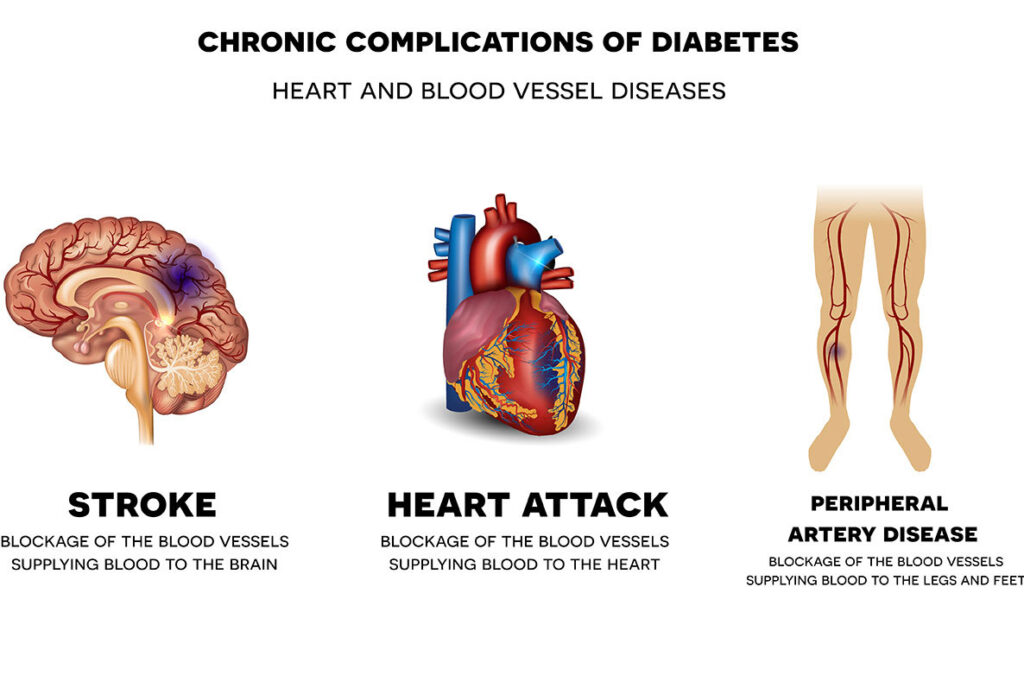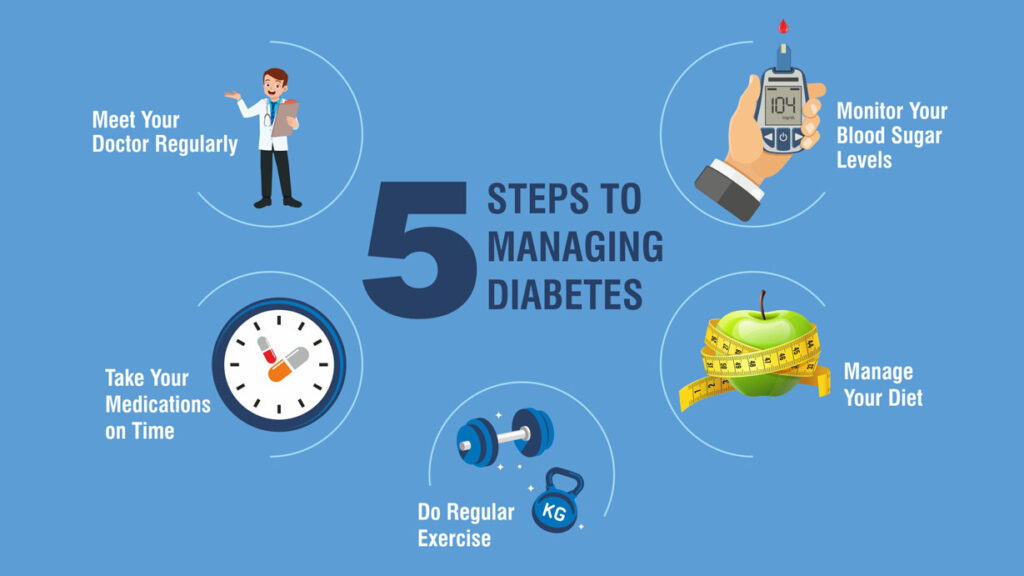EFFECT OF DIABETES ON HEART HEALTH
Diabetes affects your whole body, from your eyes to your feet, especially your heart. While your liver and pancreas are struggling with the effects of diabetes, your heart also isn’t in the best shape. The risk of heart attack or stroke increases in people with diabetes compared to those without the condition. Heart disease nowadays is a very common yet serious disease. It’s has become the leading cause of death for both men and women in the United States. Diabetes increases the risk of having heart disease or a stroke even at a younger age. The longer you have diabetes, the more likely is your chance of having heart disease.
People with diabetes are more prone to get heart disease that is more severe or starts at a younger age. So while proper diabetes care should include managing your blood sugar levels, you also need to think about the increased risk of heart disease and stroke-related to your condition.

WHAT IS A HEART DISEASE?
Heart disease includes numerous problems affecting the function as well as structure of your heart. Cardiovascular disease is similar but also includes stroke and blood vessel disease. The most common type is coronary artery disease, which affects blood flow to the heart.
Coronary artery disease results from the buildup of plaque in the walls of the coronary arteries. It affects the blood vessels that supply oxygen and blood to the heart. The plaque may consist of cholesterol deposits narrowing the inside of arteries and decreasing the blood flow. This process is known as atherosclerosis or the hardening of the arteries. The heart attack may also result from decreased blood flow to the heart. But, decreased blood flow to the brain can cause a stroke.
The arteries of another part of the body can also harden, such as legs and feet. This is known as peripheral arterial disease, or PAD, which is often the first sign that a person with diabetes has cardiovascular disease.

HOW DIABETES AFFECTS YOUR HEART?
The high blood glucose level in diabetes can damage your blood vessels and the nerves controlling your heart and blood vessels. Uncontrolled high blood sugar over time can damage blood vessels and the nerves that control your heart. People with diabetes may also have other conditions that raise the risk for heart disease:
High blood pressure increases the force of blood flowing through your arteries leading to damage of artery walls. The risk of heart disease increases greatly if you have both high blood pressure and diabetes.
A high level of LDL (“bad”) cholesterol in your bloodstream can form plaque on damaged artery walls. High triglycerides (a type of fat in your blood) and low HDL (“good”) cholesterol or high LDL cholesterol result in the hardening of the arteries.
This condition might not even show any symptoms. With a high sugar level, your doctor will also check your blood pressure and run a blood test to check your LDL, HDL, and triglyceride levels.
Some of the factors that can also raise your risk for heart disease:
- Smoking: Both smoking and diabetes narrow blood vessels and thus increasing your chance of developing heart disease and other problems such as lung disease, lower leg infections, and ulcers, and foot or leg amputation.
- Being overweight or obese: This makes it difficult to manage the sugar level. Excess belly fat around your waist, even though you might not be overweight, can raise your chances of developing heart disease.
- Not enough physical activity: This can lead to a high level of blood glucose and thus increasing the chance of developing heart disease.
- Diet high in saturated fat, trans fat, cholesterol, and sodium (salt).
- Drinking too much alcohol.
- Family history of heart disease.
Heart failure is common among people with diabetes. Heart failure is a serious condition affecting the pumping of blood by the heart, but it doesn’t mean the heart has stopped beating. This can cause swelling in your legs and fluid building up in your lungs, making it difficult to breathe. Heart failure tends to worsen over time, however, early diagnosis and treatment can reduce the symptoms and delay or even the condition from getting worse.
People with diabetes are more likely to develop heart disease at a younger age than people without diabetes. Adults with diabetes are almost twice as likely to have heart disease or stroke as someone without diabetes.

TESTING FOR DIABETES AND LINK WITH HEART DISEASE
Your blood pressure, cholesterol levels, and weight will help your doctor determine your overall risk for heart disease and its effect from diabetes. Your doctor may recommend other tests to further check your heart health, including:
- An electrocardiogram or ECG: This helps measure your heart’s electrical activity. Your heartbeat results from an electrical impulse traveling through your heart.
- An echocardiogram or echo: Examines the thickness of your heart muscle is and how well your heart pumps.
- An exercise stress test or treadmill test: Depicts how well your heart functions when it’s working hard.

TAKING CARE OF YOUR HEART
Lifestyle changes can help reduce the risk of heart disease as well as control diabetes. These would include:
Diet: Natural occurring sugar is present in any food that contains carbohydrates including fruits, vegetables, grains, and dairy. But, these foods are also packed with nutrients such as fiber, minerals, antioxidants, calcium, and protein. Eat more fresh fruits and vegetables, lean protein, and whole grains to help manage diabetes. You should avoid processed foods such as chips, sweets, and fast food, and trans fat. Also, reduce the sugary drink and alcohol, but increase the water intake.
Aim for a healthy weight: Losing even a modest amount of weight help lower your triglycerides and blood sugar if you are overweight. Modest weight loss ranges from 5% to 7% of body weight. Diet and exercise help in managing weight.
Being physically active: Physical activity makes your body more sensitive to insulin, which helps manage your diabetes. This also helps control blood sugar levels and even lowers your risk of heart disease. Engaging in moderate-intensity physical activity, such as brisk walking for at least 150 minutes per week greatly reduces the risk of heart disease and manages sugar levels.
Managing Diabetes: It is important to manage glucose levels to reduce the risk of heart disease as well as related problems. Some important tips are:
- Get a regular A1C test to measure your average blood sugar level. The aim is to stay in your target range as much as possible.
- Maintain your blood pressure below 140/90 mm Hg or as per the doctor’s recommendation.
- Manage your cholesterol levels.
- Stop smoking or don’t start.
Manage stress: Stress is a strong factor that can raise your blood pressure. This can even lead to unhealthy behaviors, such as drinking too much alcohol or overeating. If you are not able to control stress and anxiety it is advised to visit a mental health counselor, try meditation or deep breathing, get some physical activity, or get support from friends and family.
OUTLOOK
People with diabetes are at a greater risk of developing heart problems. It is important to find ways to reduce this risk. The researchers have developed new drugs that reduce plaque build-up in blood vessels and protect people with diabetes against this serious complication.
If you or anyone you know is suffering from diabetes and heart-related issues, our expert providers at Specialty Care Clinics will take care of your health and help you recover.
Call us on (469) 545-9983 to book an appointment with our specialists.
